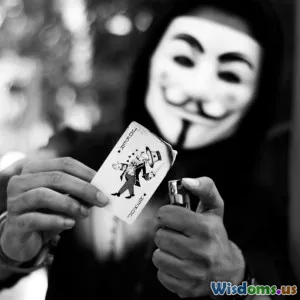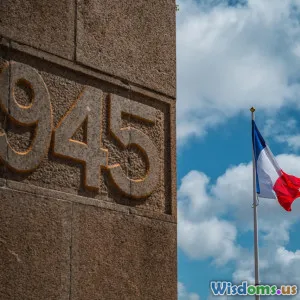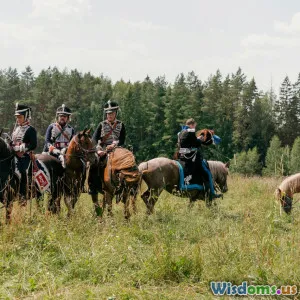
The Truth Behind Secret Societies
7 min read Unveil the reality of secret societies — myths, origins, and influences decoded. (0 Reviews)
The Truth Behind Secret Societies
Secret societies have long been subjects of mystery and intrigue, often shrouded in conspiracy theories and lore. From whispered legends of clandestine gatherings to claims of global political agendas, these organizations spark curiosity like few other phenomena. But what is the truth behind secret societies? Are they powerful puppeteers of history or simply groups of people bonded by tradition and secrecy?
This article aims to unravel the complex tapestry that surrounds secret societies, illuminating their historical origins, social roles, and the reasons why our fascination with them endures.
Understanding Secret Societies: Definitions and Origins
Secret societies are organizations whose activities, membership, or goals are concealed from non-members. Unlike public associations or clubs, these societies often require oaths of secrecy and conduct some rituals behind closed doors.
Historical Roots
Many secret societies trace their origins centuries back. The Freemasons, one of the most famous, originated in the late Middle Ages as guilds of skilled stonemasons in Europe. Over time, their focus shifted to philosophical and ethical teachings, using allegories drawn from masonry.
Similarly, the Illuminati was an Enlightenment-era secret society founded in Bavaria in 1776, aiming to promote secularism and combat religious superstition. Though disbanded within a decade, its name still sparks conspiratorial chatter.
Beyond Europe, secret societies have existed globally — the Chinese Triads, Japanese Yakuza, or the Society of the Pug in India, each with unique societal roles.
The Allure of Secrecy: Why Do These Societies Exist?
Secrecy serves various purposes beyond speculation:
- Protection of Members: In hostile political or social climates, binding secrecy could shield members from persecution.
- Exclusive Knowledge and Rituals: Creating a sense of belonging and identity.
- Influence and Networking: Secret societies often function as hubs for mutual support, sometimes offering political or economic advantages.
For example, Yale University's Skull and Bones society has historically included influential political figures, leading critics to speculate about its members’ behind-the-scenes influence.
Common Myths Versus Reality
Myth: Secret Societies Control the World
An enduring myth is that secret societies manipulate governments and economies on a global scale.
Reality:
While some societies boast influential members, there is no verified evidence they wield monolithic control over world affairs or orchestrate major historic events covertly. Academic research suggests that many of these claims stem from exaggerated tales or attempts to simplify complex geopolitical realities.
Myth: Membership Is Sought for Power
Public belief often holds that joining these societies guarantees immediate access to power and wealth.
Reality:
Membership often requires stringent vetting, personal commitment, and align with particular ideals or networks rather than promises of material gain.
Secret Societies in Modern Times: Influence and Role
Today, many secret societies continue to exist, though often less mystically and more as social organizations.
Influence in Politics and Business
Though some members occupy notable positions, tangible proof of organized influence is scarce. For instance, claims about the Bilderberg Group — a private conference of influential figures — managing global policies remain speculative.
Cultural and Philanthropic Contributions
Some secret societies engage in philanthropy and cultural preservation. The Freemasons, for example, have contributed significantly to charitable causes and historical monument restorations.
Pop Culture Impact
Films, books, and video games often reflect and amplify public intrigue. Dan Brown’s "The Da Vinci Code" mixes fact and fiction, fueling both interest and misconceptions about organizations like the Priory of Sion.
The Psychology of Secrecy and Mystery
Why do secret societies fascinate people so deeply?
Psychologists argue that secrecy invites speculation and storytelling, fulfilling a natural human need for mystery and drama. This enchantment can also mask more mundane realities of such groups’ functioning.
Taking a Critical View: Assessing Sources and Claims
Given the flood of misinformation, critical thinking is essential. Scholars recommend carefully evaluating sources, recognizing bias, and differentiating between documented facts and sensationalized conspiracy theories.
Reliable resources include reputable historical texts, academic research publications, and firsthand accounts from members willing to share insights.
Conclusion: Demystifying the Enigma
The truth behind secret societies lies somewhere between shadowy reality and vivid myth. While these groups have existed through centuries, their role is largely social and cultural rather than the omnipotent powers many imagine.
Understanding their roots, functions, and influence demystifies the allure, empowering us to engage with this aspect of human social behavior with clarity and curiosity rather than fear or blind speculation.
In a world awash with conspiracy theories, the most powerful secret may simply be the knowledge to discern fact from fiction.
By uncovering the layers behind secret societies, we find a fascinating blend of history, culture, and the human desire for connection — a story that continues to evolve as we do.
Rate the Post
User Reviews
Popular Posts




















